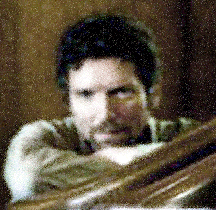Napoleon Bonaparte
My love affair with three dimensions really started when one day I was browsing in Crown Books, in Santa Monica, and Shelley pointed out to me Robert Sabuda’s brilliant pop-up book, The Wizard of Oz. I opened it up and my jaw dropped. I bought it immediately for $16.95 before the bookshop discovered it had made a mistake. I was certain that the book really cost over $100, as such were the amazing details.
I resolved to be become an expert on paper engineering. I still have that resolve. What a delight it is to create a three-dimensional moving work of art from just a few pieces of folded paper. I have made various attempts at origami, but that for me is more of a mental process. Pop-ups are a total giddy delight.
Since then, Shelley and I have purchased all manner of pop-up books. The latest we acquired was by Robert Sabuda’s partner, Matthew Reinhart. His pop-up book, The Jungle Book has brought lots of giggles to our home and is our most prized book. Matthew really seems to have advanced the art. I hope you can see from the pictures below how the tiger leaps off the page. What you can’t see is how the claws menacingly unfurl as the page is slowly opened.


